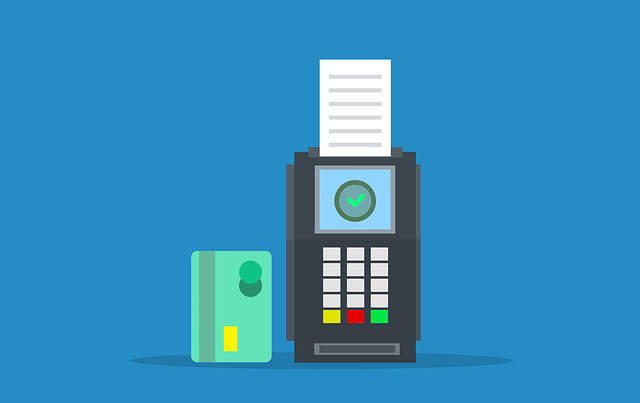Debt consolidation loans in South Africa simplify multiple debt management by combining various loans into one with lower interest rates and manageable repayment terms, saving borrowers money and enhancing credit scores. Success depends on factors like debt amount, debt-to-income ratio, credit history, and loan terms. After consolidation, effective financial management, including budget planning and emergency fund building, is crucial for maintaining good credit and preventing future debts.
In South Africa, managing debt is a common challenge, but understanding debt consolidation loans can provide a viable solution. This article explores how consolidating your debts through loans can significantly improve your credit score in SA. We’ll guide you through the process, from comprehending consolidation of debt options to managing your finances post-consolidation. By the end, you’ll be equipped with insights to make informed decisions about alleviating your financial burden.
- Understanding Debt Consolidation Loans in South Africa
- How Debt Consolidation Can Improve Your Credit Score
- Factors Affecting the Success of Debt Consolidation
- The Process of Obtaining a Debt Consolidation Loan
- Managing Your Finances After Consolidation
Understanding Debt Consolidation Loans in South Africa

Debt consolidation loans are a popular financial tool in South Africa, offering a strategic approach to managing multiple debts. This process involves combining several outstanding debts into one single loan with a potentially lower interest rate and more manageable repayment terms. The primary goal is to simplify debt management for borrowers by reducing the number of payments they need to make each month, which can help them save on interest expenses in the long run.
In SA, consolidation of debt has gained traction as a way out of complex financial situations, allowing individuals to regain control over their finances. These loans are particularly attractive to those with diverse debt obligations, such as credit card balances, personal loans, and store cards, each with varying interest rates. By consolidating these debts, borrowers can streamline their payments and potentially free up extra cash that was previously allocated for numerous minimum monthly payments.
How Debt Consolidation Can Improve Your Credit Score

Debt consolidation is a strategic approach that can significantly enhance your credit score in South Africa. By consolidating multiple high-interest debts into a single loan with a lower interest rate, you gain better control over your finances. This process simplifies repayment, as you now have one monthly payment to focus on instead of several. As a result, you’re more likely to make on-time payments, which is a critical factor in improving your credit score.
Additionally, consolidating debt can reduce the amount of money you pay in interest over time, allowing you to save money while clearing your debts faster. This demonstrates responsible financial management, positively impacting your credit profile. Lenders view consolidated debt as a sign of financial discipline and may be more willing to offer favourable terms on future loans, further improving your creditworthiness.
Factors Affecting the Success of Debt Consolidation

Several factors play a crucial role in determining the success of debt consolidation loans in South Africa, ultimately impacting your credit score. Firstly, the amount you consolidate and your overall debt-to-income ratio are key considerations. Lenders assess whether you can manage the new loan, so demonstrating a healthy ratio improves your chances. Additionally, the type of debts you’re consolidating matters; high-interest credit card debts often see more significant improvements in credit scores after consolidation.
Other factors include your credit history and payment discipline. A solid repayment track record is essential, as consistent on-time payments can boost your score. Conversely, late or missed payments can negatively impact your creditworthiness. Furthermore, understanding the terms of the loan, including interest rates and fees, is vital to making informed decisions that support successful debt consolidation.
The Process of Obtaining a Debt Consolidation Loan

Obtaining a debt consolidation loan is a strategic step towards financial freedom, especially in South Africa where managing multiple debts can be challenging. The process begins with an assessment of your current financial situation by lenders who analyse your credit history and income to determine your eligibility. Once approved, you’ll need to decide on the loan amount that covers all your existing debts, ensuring each is paid off in full. This involves careful planning and consideration of your budget to avoid burdening yourself with new debt.
Lenders offer various types of consolidation loans, including unsecured personal loans or secured home loans, depending on your creditworthiness. After selecting a suitable loan option, the next step is to sign the necessary paperwork, which outlines the terms and conditions of the loan, including interest rates and repayment periods. It’s crucial to understand these terms to make an informed decision that aligns with your financial goals.
Managing Your Finances After Consolidation

After successfully consolidating your debt, managing your finances effectively is crucial to maintaining a good credit score. One of the primary benefits of consolidation is that it simplifies your repayment process by combining multiple debts into one manageable loan with potentially lower interest rates. This allows for better budget planning and ensures you make consistent payments on time.
To further improve your financial health, consider allocating any savings from reduced interest expenses towards additional debt repayment or building an emergency fund. Being proactive in managing your finances post-consolidation can help prevent future debts and demonstrate responsible credit usage to lenders, positively influencing your credit score over time.







